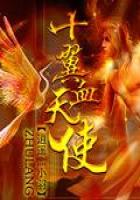The correctness of this explanation, resting as it does on the belief that the Greeks were at one time in the savage status, might be demonstrated from the fact that not only myths, but Greek life in general, and especially Greek ritual, teemed with surviving examples of institutions and of manners which are found everywhere among the most backward and barbarous races. It is not as if only the myths of Greece retained this rudeness, or as if the Greeks supposed themselves to have been always civilised. The whole of Greek life yields relics of savagery when the surface is excavated ever so slightly. Moreover, that the Greeks, as soon as they came to reflect on these matters at all, believed themselves to have emerged from a condition of savagery is undeniable. The poets are entirely at one on this subject with Moschion, a writer of the school of Euripides. "The time hath been, yea, it HATH been," he says, "when men lived like the beasts, dwelling in mountain caves, and clefts unvisited of the sun. . . . Then they broke not the soil with ploughs nor by aid of iron, but the weaker man was slain to make the supper of the stronger," and so on. This view of the savage origin of mankind was also held by Aristotle: "It is probable that the first men, whether they were produced by the earth (earth-born) or survived from some deluge, were on a level of ignorance and darkness". This opinion, consciously held and stated by philosophers and poets, reveals itself also in the universal popular Greek traditions that men were originally ignorant of fire, agriculture, metallurgy and all the other arts and conveniences of life, till they were instructed by ideal culture-heroes, like Prometheus, members of a race divine or half divine. A still more curious Athenian tradition (preserved by Varro) maintained, not only that marriage was originally unknown, but that, as among Australians and some Red Indians, the family name, descended through the mother, and kinship was reckoned on the female side before the time of Cecrops.
Moschion; cf. Preller, Ausgewahlte Aufsatze, p. 206.
Politics, ii. 8-21; Plato, Laws, 667-680.
Compare Horace, Satires, i. 3, 99; Lucretius, v. 923.
Suidas, s.v. "Prometheus"; Augustine, De Civitate Dei, xviii. 9.
While Greek opinion, both popular and philosophical, admitted, or rather asserted, that savagery lay in the background of the historical prospect, Greek institutions retained a thousand birth-marks of savagery. It is manifest and undeniable that the Greek criminal law, as far as it effected murder, sprang directly from the old savage blood-feud. The Athenian law was a civilised modification of the savage rule that the kindred of a slain man take up his blood-feud. Where homicide was committed WITHIN the circle of blood relationship, as by Orestes, Greek religion provided the Erinnyes to punish an offence which had, as it were, no human avenger. The precautions taken by murderers to lay the ghost of the slain man were much like those in favour among the Australians. The Greek cut off the extremities of his victim, the tips of the hands and feet, and disposed them neatly beneath the arm-pits of the slain man. In the same spirit, and for the same purpose, the Australian black cuts off the thumbs of his dead enemy, that the ghost too may be mutilated and prevented from throwing at him with a ghostly spear. We learn also from Apollonius Rhodius and his scholiast that Greek murderers used thrice to suck in and spit out the gore of their victims, perhaps with some idea of thereby partaking of their blood, and so, by becoming members of their kin, putting it beyond the power of the ghosts to avenge themselves. Similar ideas inspire the worldwide savage custom of ****** an artificial "blood brotherhood" by mingling the blood of the contracting parties. As to the ceremonies of cleansing from blood-guiltiness among the Greeks, we may conjecture that these too had their primitive side; for Orestes, in the Eumenides, maintains that he has been purified of his mother's slaughter by sufficient blood of swine. But this point will be illustrated presently, when we touch on the mysteries.
Duncker, History of Greece, Engl. transl., vol. ii. p. 129.
See "Arm-pitting in Ancient Greece," in the American Journal of Philology, October, 1885, where a discussion of the familiar texts in Aeschylus and Apollonius Rhodius will be found.
Ritual and myth, as might be expected, retained vast masses of savage rites and superstitious habits and customs. To be "in all things too superstitious," too full of deisidaimonia, was even in St. Paul's time the characteristic of the Athenians. Now superstition, or deisidaimonia, is defined by Theophrastus, as "cowardice in regard to the supernatural" ().
This "cowardice" has in all ages and countries secured the permanence of ritual and religious traditions. Men have always argued, like one of the persons in M. Renan's play, Le Pretre de Nemi, that "l'ordre du monde depend de l'ordre des rites qu'on observe". The familiar endurable sequence of the seasons of spring, and seed-sowing, and harvest depend upon the due performance of immemorial religious acts. "In the mystic deposits," says Dinarchus, "lies the safety of the city." What the "mystic deposits" were nobody knows for certain, but they must have been of very archaic sanctity, and occur among the Arunta and the Pawnees.
Characters.
Ap. Hermann, Lehrbuch, p. 41; Aglaophamus, 965.















